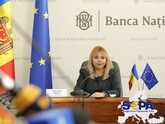
Moldova introduces trade protection measures against imports of white sugar from Serbia for 200 days
The government approved the relevant decree at a meeting on Wednesday. The temporary measures are being introduced in accordance with the provisions of Article 23 of the Agreement on Amendments and Accession to the Central European Free Trade Agreement (CEFTA), which consists of a temporary suspension of customs duty exemptions on imports into Moldova of white sugar from sugar beet from Serbia, classified under commodity code 1701 99, when the quota of 1,000 tons is exceeded. Imports exceeding the established quota will be subject to customs duties in accordance with the Harmonized System. This measure is necessary to support the competitiveness of the national sugar industry, which provides more than 3,000 jobs in rural areas and brings farmers an income of around €1,200 per hectare. The measure aims to address the imbalance that arose in 2025 due to sugar imports at prices below the cost of production. It was caused by the severe drought of 2024, which affected more than 60% of sugar beet acreage and forced Moldova to import more sugar for domestic consumption. According to the Ministry of Economic Development and Digitalization, 14,846 tons of sugar were imported from Serbia in August-December 2024, accounting for 63% of total imports and 23% of domestic consumption. In 2025, imports continued, reaching 13,800 tons. At the same time, Moldova did not import sugar from Serbia until 2024, and in just one year, products from this country accounted for almost 47% of the import market. In 2025, Moldovan farmers managed to replant 5.2 thousand hectares, and another 228 hectares were compensated with alternative crops, which allowed for a good harvest. By the end of 2025, local producers will ensure the production of 78,000 tons of sugar, which is sufficient to cover domestic consumption in 2025–2026 (63–67,000 tons per year). "Without this protective measure, domestic production risks being completely replaced by imported sugar, which threatens the agri-industrial value chain created over the past two decades, investments of €130 million, and the stability of rural communities. This measure does not restrict trade, but restores market balance, protects farmers and consumers, and strengthens Moldova's food security," said Minister of Economic Development and Digitalization Doina Nistor. There are two major producers operating in Moldova's sugar market, both with foreign investment in their share capital: Sudzucker Moldova, part of the German Südzucker Group (providing 65% of domestic sugar consumption), and Moldova Zahăr, part of the Polish Krajowa Grupa Spożywcza Group (35%). The government-approved resolution will come into force after publication in Monitorul Oficial (the Official Journal of Moldova). // 08.10.2025 – InfoMarket.







